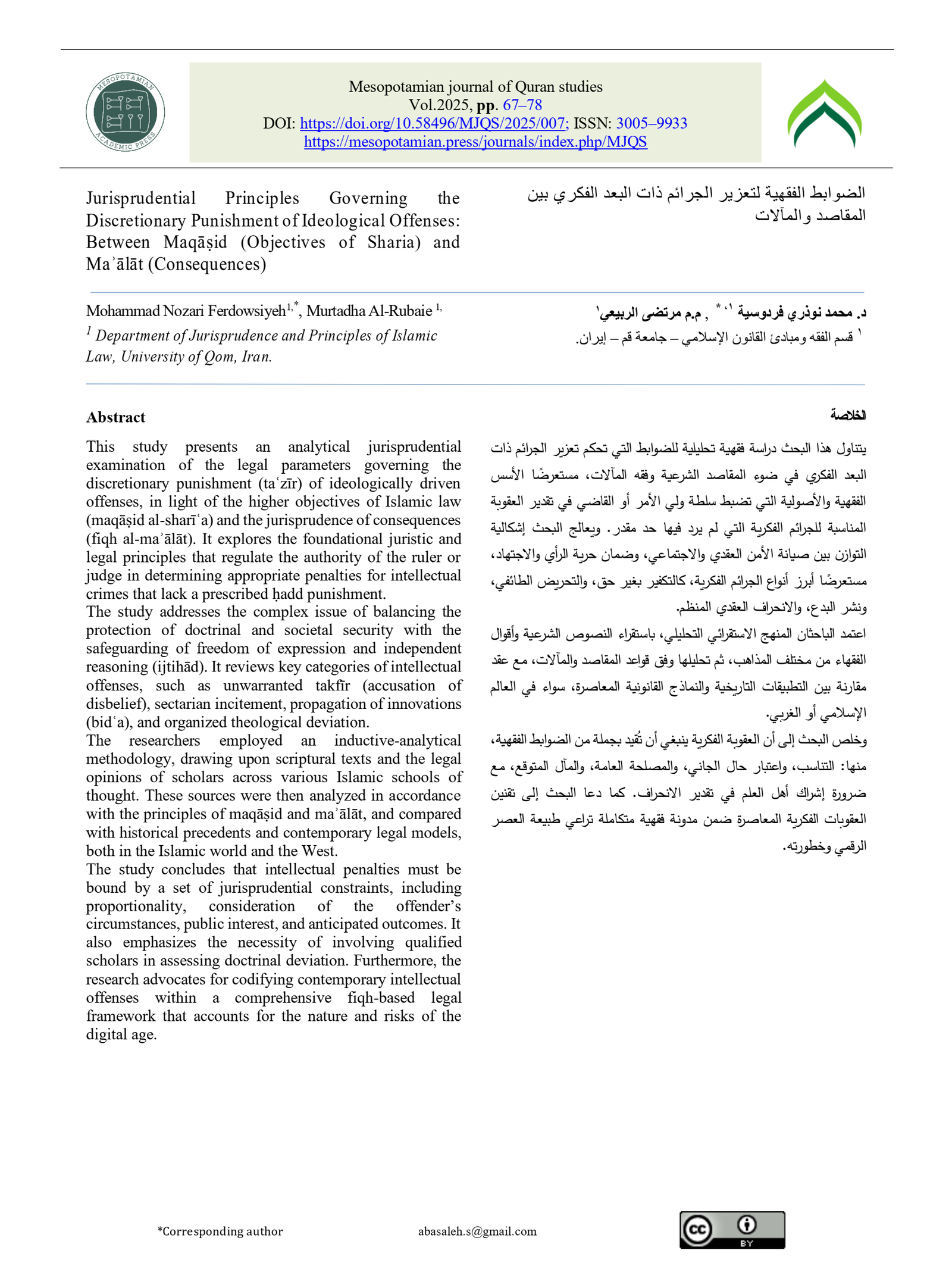Jurisprudential Principles Governing the Discretionary Punishment of Ideological Offenses: Between Maqāṣid (Objectives of Sharia) and Maʾālāt (Consequences)
Main Article Content
Abstract
This study presents an analytical jurisprudential examination of the legal parameters governing the discretionary punishment (taʿzīr) of ideologically driven offenses, in light of the higher objectives of Islamic law (maqāṣid al-sharīʿa) and the jurisprudence of consequences (fiqh al-maʾālāt). It explores the foundational juristic and legal principles that regulate the authority of the ruler or judge in determining appropriate penalties for intellectual crimes that lack a prescribed ḥadd punishment.
The study addresses the complex issue of balancing the protection of doctrinal and societal security with the safeguarding of freedom of expression and independent reasoning (ijtihād). It reviews key categories of intellectual offenses, such as unwarranted takfīr (accusation of disbelief), sectarian incitement, propagation of innovations (bidʿa), and organized theological deviation.
The researchers employed an inductive-analytical methodology, drawing upon scriptural texts and the legal opinions of scholars across various Islamic schools of thought. These sources were then analyzed in accordance with the principles of maqāṣid and maʾālāt, and compared with historical precedents and contemporary legal models, both in the Islamic world and the West.
The study concludes that intellectual penalties must be bound by a set of jurisprudential constraints, including proportionality, consideration of the offender’s circumstances, public interest, and anticipated outcomes. It also emphasizes the necessity of involving qualified scholars in assessing doctrinal deviation. Furthermore, the research advocates for codifying contemporary intellectual offenses within a comprehensive fiqh-based legal framework that accounts for the nature and risks of the digital age.
Article Details
Issue
Section

This work is licensed under a Creative Commons Attribution-ShareAlike 4.0 International License.
Deprecated: json_decode(): Passing null to parameter #1 ($json) of type string is deprecated in /home/u273879158/domains/mesopotamian.press/public_html/journals/plugins/generic/citations/CitationsPlugin.php on line 68
